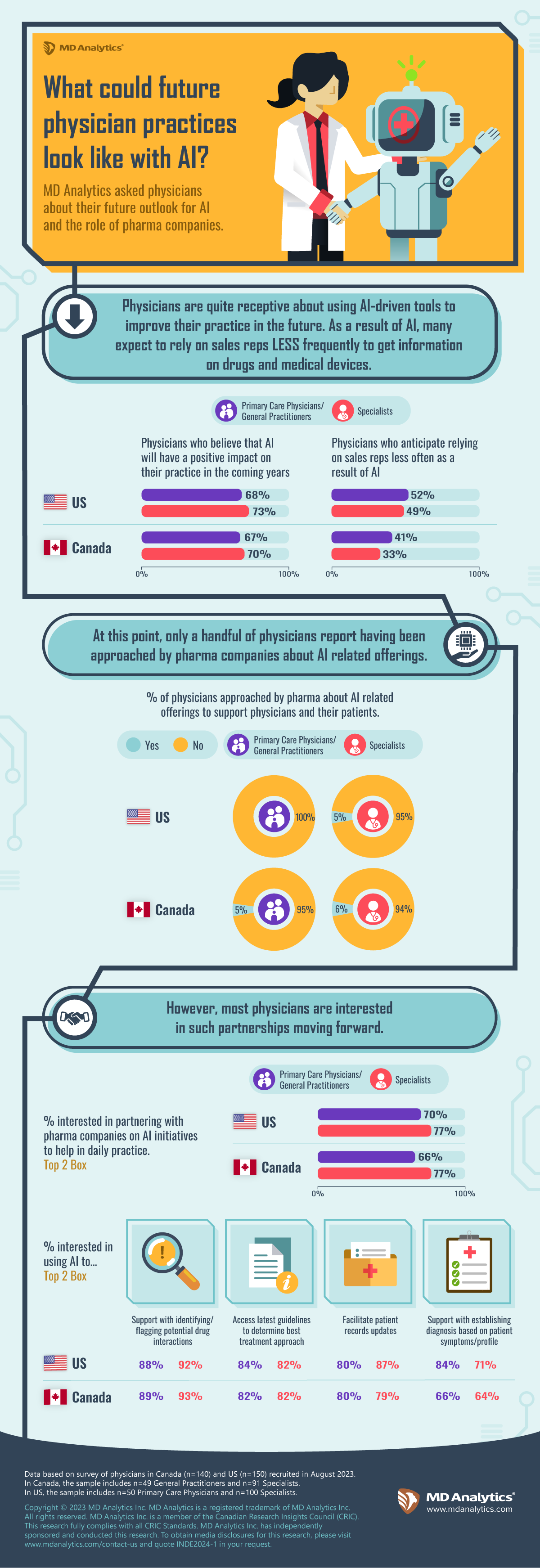Artificial intelligence (AI) and large language models (LLMs), such as ChatGPT, are likely to be increasingly integrated into our healthcare systems which, in turn, may influence physicians’ practice. Indeed, these AI tools can be used to help streamline administrative tasks, and aid physicians in finding information about treatment efficacy and tolerability profiles along with potential drug interactions. This automation could free up valuable time for healthcare professionals to focus on patient care and more complex medical issues.
But what do physicians think about the future role of AI in their practice?
Read More
MD Analytics interviewed 300 physicians, in the US and Canada, to better understand physicians’ future outlook for AI and their perceptions of the role that the pharmaceutical and the medical technology industry could play in the development of AI tools.
Although AI has made significant inroads in healthcare, the interaction between physicians and industry in this context remains relatively limited. Only a handful of physicians have been approached by pharmaceutical or medical technology companies regarding AI-related offerings. However, this could change as most physicians (more than two-thirds) express a keen interest in partnering with pharmaceutical or medical technology companies on AI initiatives to help in their daily practice if given the opportunity. Physicians display a general interest in utilizing AI support technologies in their medical practice especially in identifying/flagging potential drug interactions, accessing the latest guidelines to determine the best treatment approach for their patients, facilitating patient record updates and getting support when establishing diagnosis.
Overall, physicians are optimistic about the positive impact of AI on their practice in the future. If AI LLMs are more widely implemented, physicians anticipate a shift in their reliance on traditional sources of information. Indeed, between one-third and half of physicians we surveyed expect to rely less on “human” sales representatives for information on drugs and medical technologies once AI LLMs support becomes more widely implemented. Having said that, “human” sales reps will certainly remain a highly valuable source of information for a long time. That said, companies that can enhance human interactions with AI-based applications and that can help improve physician practices with AI tools will likely have an edge over others.

